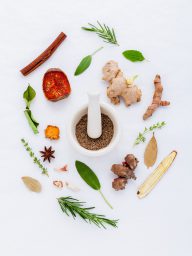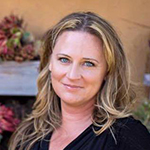 What is always in your medicine cabinet? How about your first aid kit? Acetaminophen? Melatonin? Oscillococcinum? As Americans, we average 26 stops a year to pick up over-the-counter products. But how much do we really know about what we’re putting into our bodies?
What is always in your medicine cabinet? How about your first aid kit? Acetaminophen? Melatonin? Oscillococcinum? As Americans, we average 26 stops a year to pick up over-the-counter products. But how much do we really know about what we’re putting into our bodies?
The Consumer Healthcare Products Association estimates that 81% of us use over-the-counter products as our first option for minor health concerns. They also estimate that 93% of us would “prefer to treat minor ailments with OTC medicines,” and 87% of physicians and 89% of consumers consider over-the-counter meds an important part of overall healthcare.
But does over-the-counter necessarily mean safe? According to the Merck Manual, regulations didn’t require that OTC drugs be “both safe and effective” until 1962. Nor was there an organized system for tracking side or adverse effects, at least in the U.S., until 2007.
This tracking along with other recent research has allowed us to see that regular use of some of these medications may have unintended long-term effects. One of the most attention-grabbing pieces of research was recently published in the Journal of the American Medical Association in 2015. This study found an increased risk of dementia in those who frequently took anticholinergic drugs such as common antihistamines like Benadryl.
For this and many other reasons, so many of us are seeking more natural options for our health. Contrary to popular belief, “natural” doesn’t necessarily mean safe or effective. And while discussing the FDA regulatory efforts can often lead to a frustratingly entertaining conversation, the reality is there has been far less tracking of more natural options like supplements, herbs, and homeopathy. At least as a general rule.
However, what more natural options lack in modern research, they often more than make up for in historical use. While adverse reactions of many OTC medications have been tracked formally for just over 10 years, more natural options have often been used and tracked in a less formal manner for centuries. It is just a little more difficult to find reliable resources for the historical use (along with more formal testing) of some of these natural options.
Understanding the basics of how to use more natural options is one of the most empowering ways to take our health back into our own hands! My new seminar series, Stocking a Natural Medicine Cabinet, focuses on those exact basics. We discuss tools like homeopathy, herbal medicine, supplements, hydrotherapy, and other natural ways to help the body to heal more easily. The focus of the class is on equipping you with some practical tools and resources to use some natural options a little more safely and effectively.
These free classes are sponsored and offered exclusively in Austin through Peoples Rx. On Tuesday, August 27, we will be at the South Lamar Peoples from 7-8, discussing Stocking a Natural Medicine Cabinet for Sounder Sleep. Then, we will be at the Lakeline store on Wednesday, August 28 from 7-8 talking about Stocking a Natural Medicine Cabinet for Back to School.
The conversation will be equally educational and entertaining, plus attendees will receive special product discounts. Hope you’ll join!
 Jonci Jensen, ND*, is a Naturopathic Doctor based in North County San Diego. She provides holistic care for auto-immune, stress, and chronic conditions. Recommendations including homeopathy, healthy diet, nutritional supplements, and natural living. Dr. Jonci is an adjunct professor at Bastyr University in San Diego and teaches classes across the country on using natural medicine.
Jonci Jensen, ND*, is a Naturopathic Doctor based in North County San Diego. She provides holistic care for auto-immune, stress, and chronic conditions. Recommendations including homeopathy, healthy diet, nutritional supplements, and natural living. Dr. Jonci is an adjunct professor at Bastyr University in San Diego and teaches classes across the country on using natural medicine.
*Naturopathic doctors are not currently licensed in the state of Texas.
If you have comments and/or questions about this blog, email us at blog@peoplesrx.com.
